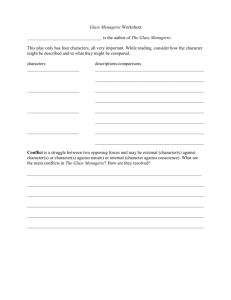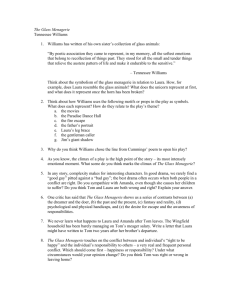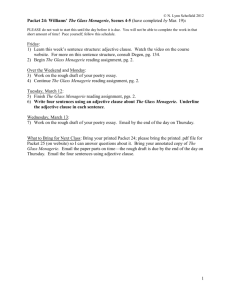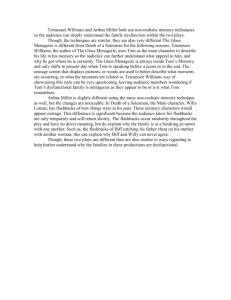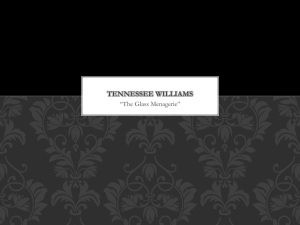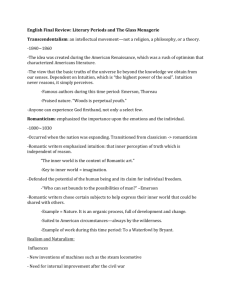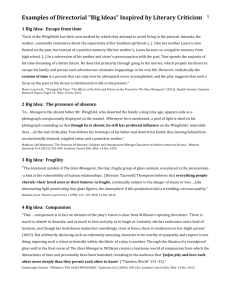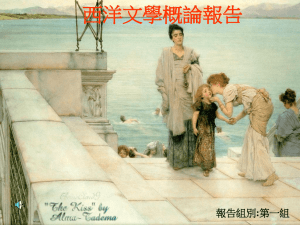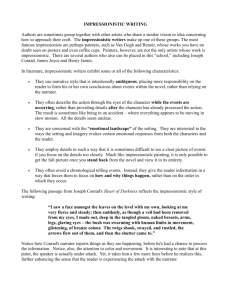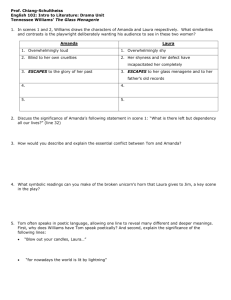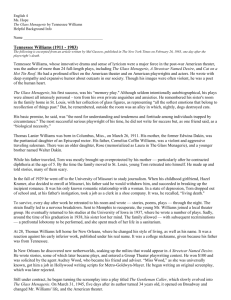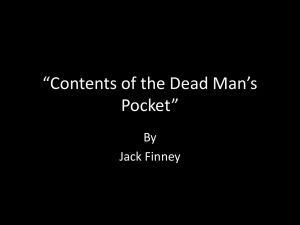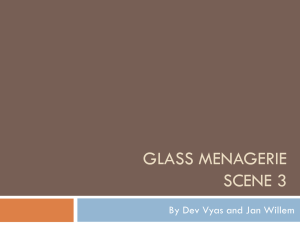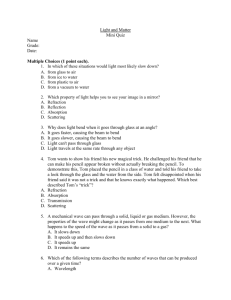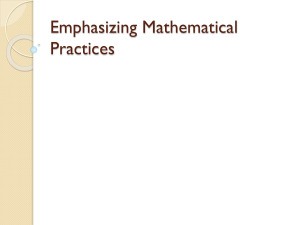Through The Looking Glass: The role of memory in the Glass
advertisement
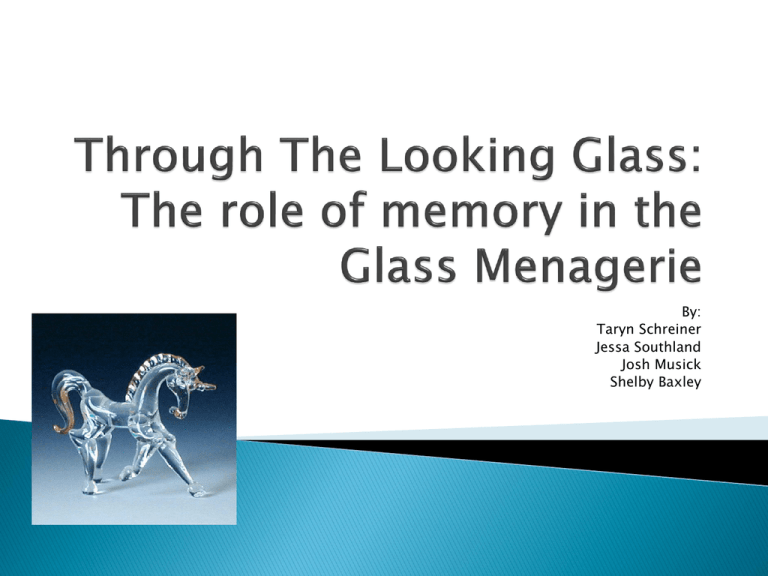
By: Taryn Schreiner Jessa Southland Josh Musick Shelby Baxley Thesis: “..Tom would have become a protagonist whose remembrance of familial things past was truly subjective, distorted, dreamlike or even nightmarish, and totally self-generated, a fantastic journey through the minds inner reaches as well as the world’s outer ones.” Yes, it helps show the audience that the play is based on Tom’s memory and is subjective to Tom’s view point. The play is Impressionistic (not expressionistic) The truth is never directly questioned during the play. The play relies on realism. “Expressionism and all other unconventional techniques in drama have only one valid aim, and that is a closer approach to the truth.” “As it stands, however, Tom’s memories are not expressionistic but impressionistic.” “The Glass Menagerie may be a memory play… but it does not question the reliability of memory..” “Like undisguised realism and naturalism The Glass Menagerie never questions its own.” The Glass Menagerie is “a straight realistic play with its genuine Frigidaire and authentic ice-cubes, its characters who speak exactly as its audience speaks.” “The actions may appear to be impressionistic or ‘non-realistic’ (though hardly expressionistic) but this is realism by any other name.” “The projections and lighting keep the effect slightly stylized during the scenes, the fragmented structure blocks us from too long an absorption in the action, and the reappearance of Tom as a narrator forces us back to the present.” http://www.youtube.com/watch?v=GFeQbEUj HVk (3:30)
